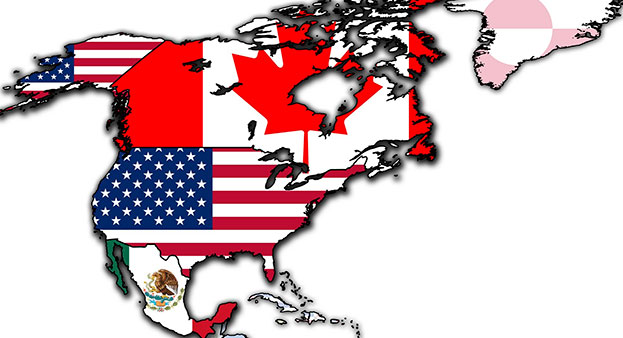In normal times, as many as 375,000 Canadian “snowbirds” wing their way to the southern U.S. and Mexico each winter.
This year, many of those travellers have decided to stay closer to home as the COVID-19 pandemic continues to rage, and with a large-scale vaccination program set to begin any day.
Still other snowbirds are determined to chase the sun, no matter what. With the Canada-U.S. land border closed to all non-essential travel, they’re faced with two choices: buy an airline ticket and risk exposure to the virus, or arrange a private flight. Many are choosing the latter option, creating opportunity for aircraft charter operators who are looking for new business streams in challenging times.
At Waterloo, Ontario-based Great Lakes Helicopter Corp., the phone has been ringing. On Nov. 3, the company performed its first cross-border ferry flight to the U.S., and it’s an offer that retirees clearly find appealing.
For $1,200 plus tax, a three-seat Robinson R44 helicopter is available to whisk them from Hamilton International Airport (YHM) to Buffalo Niagara International Airport (BUF). It’s a quick 35-minute hop for the R44, but for snowbirds who long to see the sun, the flights are worth every penny.
Necessity is often the mother of invention, and this story is no different. Great Lakes’ cross-border flights began when one of their pilots arranged to fly his retired parents across the border, and contracted a trucking company to meet them on the other side with their vehicle. The trucking company shared the news to the Canadian Snowbird Association Facebook page, and the phone began to ring at Great Lakes Helicopter.
Today, the company uses two R44 helicopters to offer nine daily flights, Thursday to Monday, between Hamilton and Buffalo. Flights are scheduled for 7, 9, and 11 a.m. and 1 and 3 p.m. For the weekend before Christmas, it will be running a third helicopter to meet anticipated demand. A Bell 206B3 and an Airbus Helicopters H130 are used to supplement the R44s.
“We’re up around a few hundred bookings to the end of January, even into early February,” reported Dwayne Henderson, general manager at Great Lakes Helicopter. “It’s not confirmed, but we’re even talking about doing Windsor/Detroit in January with one helicopter for a limited time, maybe three days a week.”
Henderson said that although the border hopping plan came together quickly, there were a lot of logistics involved. The company had to arrange for fixed-base operation (FBO) support in Hamilton and Buffalo, along with Customs services.
For snowbirds who need their wheels in the U.S., Great Lakes uses three different trucking companies to transport their vehicles across the border. The trucks load up early in the morning and start heading down the highway to Buffalo, while passengers wait for their assigned departure time at Hamilton airport. It costs an additional $700 to ship one vehicle, or $1,600 to have your truck and trailer or motorhome meet you on the other side.
“Customers go from the FBO in Hamilton, with no security or customs, to Buffalo, where Customs comes out to meet the helicopter. They’ve been very friendly; there have been no issues at all,” explained Henderson.
“It’s an easy process other than the wait times—there could be a bit of waiting in terms of how fast the truck gets across the border with their car. Passengers are very happy with the service. They think we have a great busines model.”
While Canadians can still choose to fly into the U.S. on commercial flights, many are concerned about possible exposure to COVID-19 at crowded airport terminals or while aboard aircraft. Private flights allow them to mitigate that risk, noted Henderson. Most of his customers are retired couples who own property in Florida, Arizona or Texas, many of them travelling with their dog or cat.
Henderson did say travellers who choose to enter the U.S. during the pandemic must understand the limitations of their health insurance policies.
“If they go down and have to stay in the hospital for weeks, most insurance would not cover that, so it’s important to know your policy.”
For those who decide it’s worth the risk, helicopter flights and vehicle shipping can be arranged via the Great Lakes Helicopter website. So far, the company has completed 90 trips across the border.
As with many operators, the pandemic has damaged Great Lakes’ flight training business. While it can’t bring in international students and admissions are down, Henderson said domestic charter helps to fill the gaps. In summer, the company has a base at Grand Bend, Ont., on Lake Huron, where it offers sightseeing flights. For the summer of 2021, the helicopter operator is hoping to launch a summer flight program based at a Niagara-region vineyard.
“We’re looking to be innovative,” said Henderson of the company, which operates 10 helicopters in total. “We’re redefining ourselves with the charter side of things, which I hope will give us more exposure. We’re hoping it adds to our regular charter business and our adventure series in spring and summer.”


